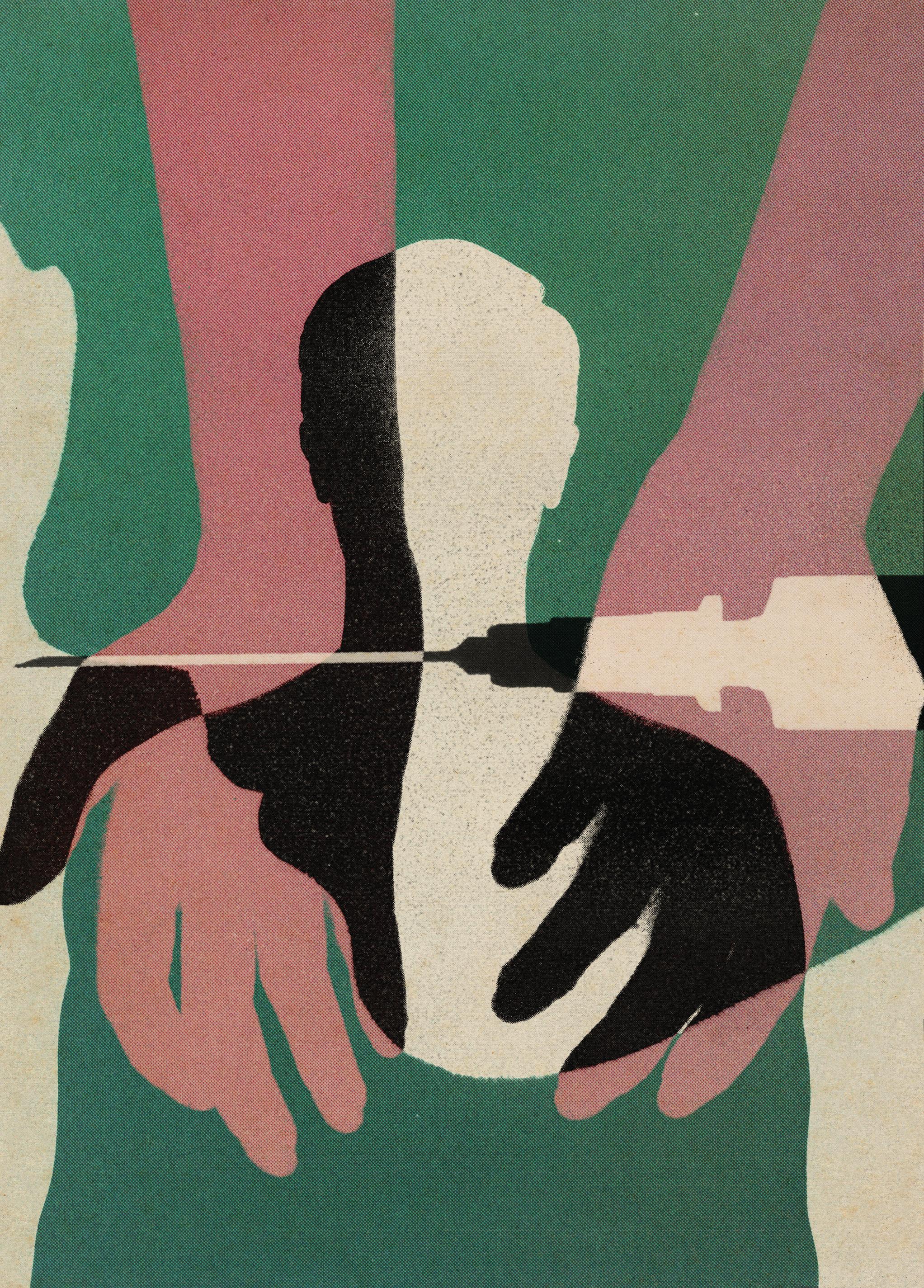Essayer OR - Gratuit
The Canadian Way of Death
The Atlantic
|June 2023
The nation legalized assisted suicide-and exposed the limits of liberalism

In October of 1858, John Stuart Mill and his wife, Harriet, were traveling near Avignon, France. She developed a cough, which seemed like just a minor inconvenience, until it got worse. Soon Harriet was racked with pain, not able to sleep or even lie down. Mill frantically wrote to a doctor in Nice, begging him to come see her. Three days later her condition had worsened further, and Mill telegraphed his forebodings to his stepdaughter. Harriet died in their hotel room on November 3.
Mill sat alone with her body in their room for a day. He was despondent over the loss of his marriage: “For seven and a half years that blessing was mine. For seven and a half years only!”
Later that same month, he sent a manuscript to his publisher, which opened with a lavish dedication to Harriet. He subsequently wrote that she had been more than his muse; she had been his co-author. The book was, he said, “more directly and literally our joint production than anything else which bears my name, for there was not a sentence of it that was not several times gone through by us together.” The book’s “whole mode of thinking,” he continued, “was emphatically hers.”
The book was called On Liberty. It is one of the founding documents of our liberal world order. Individuals, the Mills argued, have the right to be the architect of their own life, to choose whom to marry, where to live, what to believe, what to say. The state has no right to impinge on a citizen’s individual freedom of choice, provided that the person isn’t harming anyone else.
Cette histoire est tirée de l'édition June 2023 de The Atlantic.
Abonnez-vous à Magzter GOLD pour accéder à des milliers d'histoires premium sélectionnées et à plus de 9 000 magazines et journaux.
Déjà abonné ? Se connecter
PLUS D'HISTOIRES DE The Atlantic

The Atlantic
Deadlier Than Gettysburg
How the cruelty of the Confederacy's prison camps gave rise to the rules of war
10 mins
March 2026

The Atlantic
THE MAN WHO BROKE PHYSICS
One of the pleasures of watching Ilia Malinin, apart from his indifference to gravity, is to witness him becoming.
16 mins
March 2026

The Atlantic
How Toni Morrison Saw History
In her novels, she located the missing story of Black America.
12 mins
March 2026

The Atlantic
The Madness of Lord Tennyson
The Victorian poet was startlingly modern.
5 mins
March 2026

The Atlantic
THE PLOT AGAINST THE HUMANITIES
What is the Andrew W. Mellon Foundation doing to higher education?
22 mins
March 2026

The Atlantic
Why Do Democrats Hate Winning?
Ken Martin has one of those resting dread faces, as if he's bracing for someone to dump a bucket of rocks on his head.
37 mins
March 2026

The Atlantic
ROD DREHER'S DEMONS
HE DERIDES THE ENLIGHTENMENT, SECULARISM, AND THE MODERN WORLD. CONSERVATIVES-INCLUDING THE VICE PRESIDENT-ARE JOINING HIM ON A MARCH BACK TO THE MIDDLE AGES.
20 mins
March 2026

The Atlantic
Every Nation for Itself
President Trump wants to return to the 19th century's international order. He will leave America less prosperous—and the whole world less secure.
19 mins
March 2026

The Atlantic
The Secrets of Indigenous Art
Major exhibits are upending the way people understand Native American and Aboriginal artists.
14 mins
March 2026

The Atlantic
The Novel as Extended Op-Ed
If anyone could write good fiction about immigration, it would probably be Lionel Shriver. Instead, her latest book goes off the rails.
10 mins
March 2026
Translate
Change font size

